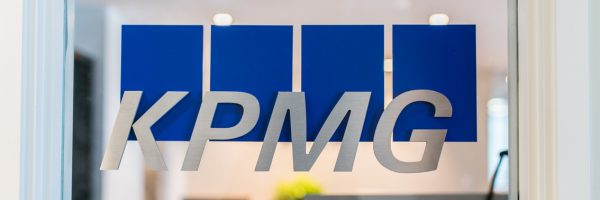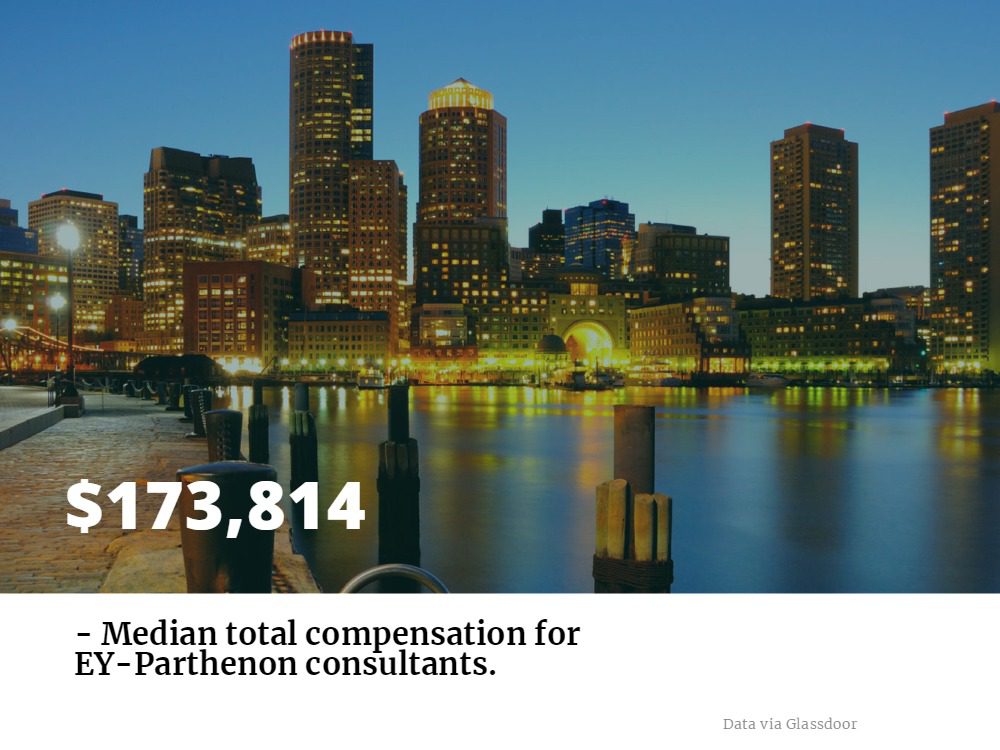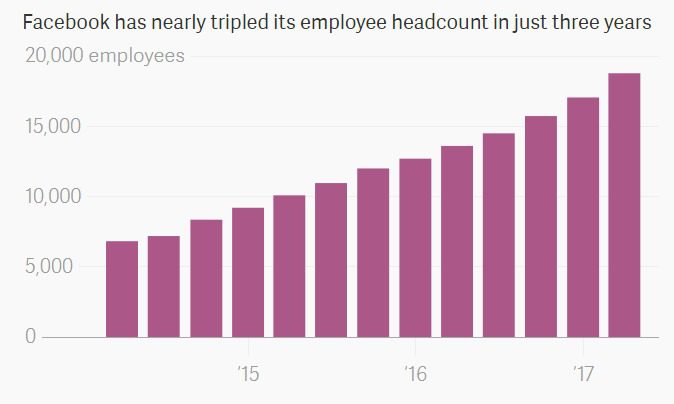Start Your Career at KPMG with an MBA

Those of you who actively watch the stars and skies might not be surprised by the parallels between the business universe and our actual cosmos.
2018 Trends: How Much Can You Get Out of a Boston MBA?

Boston, the largest city in New England, is often considered the academic, economic, and cultural center of the Northeastern United States. Beantown is also considered one of top college towns in the country thanks to its numerous esteem colleges and universities. Lots of that talent sticks too: Forbes ranks the city as one of the best places for business and careers. Continue reading…
The Not-So-Secret Way To Land a Job at EY-Parthenon

After the hard work and sweat of earning an MBA degree, you’ve probably thrown yourself into searching for the perfect job to match your new found expertise. Luckily, some of the world’s top companies are also looking for you.
Companies like EY-Parthenon are always looking to recruit top MBA talent seeking careers in strategy consulting. A division of Boston-based EY (formerly Ernst & Young), one of the world’s top professional services firms, EY-Parthenon is a strategy consultancy which aims to combine innovative thinking with clients’ smarts to create actionable strategies that can cause a real impact in today’s business world.
MBAs Love EY-Parthenon
For MBA graduates looking for a career in strategy consulting, there are few places that can provide the unique combination of diverse clients and rewarding entrepreneurial work that EY-Parthenon offers. Comments from Parthenon’s MBA-holding consultants on why they love their job range from the incredible relationships they get to build with clients to the competitive benefits package they receive (including a night at the EY suite at Yankee Stadium).
“There is certainly an attitude in the New York office that we work hard but ensure that we find that balance necessary to enjoy the great benefits of working with wonderful colleagues in the best city in the world,” commented a graduate of NYU’s Stern School of Business and current Senior Consultant at EY-Parthenon.
For Adam, a graduate of the University of Chicago Booth School of Business and current Vice President at the Shanghai office of EY-Parthenon, working at the company has given him the opportunity to use his industry specific expertise to benefit a diverse set of clients.
“[A]t any given time, I may be leading a two-week diligence for a private equity client while also working on an eight-week corporate strategy engagement,” he says. “Having such a variety of engagements while still being able to be focused on very strategic work within a single sector practice is what I think sets EY-Parthenon apart.”
Life at EY Parthenon
As a consultant at EY-Parthenon, MBAs will play a critical leadership role in the company. Serving as the primary contact for clients, MBA graduates will have the chance to get their hands dirty right away, developing and executing work plans for a diverse client set. Consultants will use their knowledge of teamwork, leadership, analytics and communications to excel in the role.
The consultant career track at EY-Parthenon consists of various phases, beginning with work stream leadership—a focus on gaining the crucial analytical skills needed to best help clients—and ending with client management, the final stage before moving into a role as a partner or managing director. EY-Parthenon accelerates individuals through their careers and have no official timetable for new consultants outside of their own ambition and ability to take on responsibilities.
According to anonymous profiles on Glassdoor, consultants at EY-Parthenon make an average of $173,814 annually.

Landing The Job
Anyone can apply for a consultant role at EY-Parthenon, but the company also actively recruits at a number of undergraduate and graduate business schools. The MBA programs the company recruits from are spread throughout the world, and include some of the United States’ top programs, such as Harvard Business School, Kellogg School of Management, and the Stanford Graduate School of Business. The company also heavily recruits at international schools like INSEAD and the London Business School.
MBA students in their second year may apply directly for a full-time consultant role with the company, and first year students are eligible to apply for the summer consultant position. Any student attending a school that EY-Parthenon directly recruits from should check for the specific instructions on how to apply to these roles, typically through their university’s career services. The interview process for these schools typically takes place over two rounds, with the first round taking place on campus and second round interviews at the one of the various global Parthenon offices.
For more information on the company and job opportunities for current MBA students and graduates, check out the official EY-Parthenon MBA job page.
Facebook Tops Glassdoor’s 100 Best Places to Work List

Employer review website Glassdoor, which allows users to read anonymous employee testimonials about employers, has revealed its annual “Best Places to Work” list, with familiar MBA recruiters Facebook, Bain & Co, and Boston Consulting Group (BCG) earning the top three spots.
Why Facebook?
Since 2011, the social media empire has been one of Glassdoor’s most praised companies to work for, earning a top five spot seven out of the past eight years, including three number one overall awards. Facebook employees are often given extensive benefits, including four months of paid maternity leave—a policy often considered a luxury in the U.S., which has no legally mandated paternity leave policies for employers. As well, earlier this year, Facebook COO Sheryl Sandberg announced the company would implement paid sick time for employees and family members.
With increasing revenue streams, the company’s hiring numbers have continued to swell, with nearly 19,000 employees as of earlier this year—a 38 percent jump from March 2016 to March 2017. In fact, just this week, the company announced it will be adding 800 more jobs at its new London office.

Data via Facebook, graphic by The Atlas/via Quartz.
Of course, the central pitch to work at the social media monolith may be predicated on the payment of employees. According to Paysa, the average Facebook salary is north of $250,000 annually, combining base pay, bonuses, and equity. Most jobs at the company start at, at least, $70,000 USD annually, with business management roles starting at $135,000.
The company has also made a concerted effort at diversifying its hiring. Speaking with Forbes, Lori Goler, vice president of people, said, “Diversity is critical to our mission at Facebook, because we serve a community of 2 billion around the world, and of course there’s diversity in that community.”
The company, according to Forbes, employs between 33 and 35 percent women, and there has been considerable gains among women employed with computer science and engineering backgrounds, as well as a 500 percent increase in employment among those of African descent since 2014. In the interview, Goler added, “We’re nowhere near where we want to be, but we’re at least hearted to see that at least we can make some progress.”
Check out Facebook’s graduate student recruitment page here.
Consulting Companies Still Reign
While certain statistics indicate a wave of MBA grads may be leaving consulting in favor of tech-centric employers, as evident by the recently released Northwestern University Kellogg School of Management employment report, consulting companies are remain one of the primary targets for MBA students and graduates, and for good reason.
Bain & Co., like Facebook, has been endlessly praised by Glassdoor reviews, ranking among the top four best places to work every year since 2009. Like most of the companies on the year-end list, Bain offers ample benefits, including several months of paid maternity leave, comprehensive vacation and insurance policies, and one of the world’s best 401K offers. Fellow Boston metro company BCG also officers a considerable parental leave benefits package, retirement planning, and lofty salaries.

Inside the New York City BCG office/Photo via BCG.
Like Bain, BCG makes a concerted effort to bring in incredibly comparable MBA graduates, recruiting students from multiple prominent business schools like The Wharton School, NYU Stern, Columbia Business School, and many more.
Some Traditional Companies Remain Steady, While Giants Like Apple Stumble
Tech empire Google, not surprisingly, held its place among the top 10 companies—having never fallen lower than eighth overall since 2012. Just outside of the top ranking companies, McKinsey & Co. stayed within the top 20, while other notable heavyweights like Microsoft (39th), Capital One (69th), Deloitte (77th), Accenture (83rd), and Apple (84th), the world’s most successful consumer company, fell to the lower ends of the list.
Despite having the second most profitable year in company history, falling shortly behind it’s 2015 figures, Apple has been steadily dropping down Glassdoor’s annual Best Of list, posting its worst standing in the history of the ranking—nearly 50 spots worse than last year’s ranking of 36th overall.
Considering, however, that the annual ranking is comprises of over 500,000 companies, this drop may not be as serious as it would appear. The overall Glassdoor rating for Apple was 4.3, in contrast to Facebook, which boasts a current 4.6 rating. The average Glassdoor rating for employers, for context, is 3.3.
Some Surprises
Not every company included in the Glassdoor Best Of list could be considered a traditional MBA recruiters, including beloved U.S. west coast fast food chain In-N-Out Burger (fourth overall), growing athletic leisurewear empire Lululemon (sixth), wine company E. & J. Gallo Winery(14th), Delta Airlines (17th), and The Church of Jesus Christ of Latter-day Saints (19th), which provides “Excellent dental and medical coverage,” according to an anonymous employee. Plus, “you work with people who don’t swear.”
For a more extensive overview of the methodology behind the ranking, click here.
Tech Grads Surge in New Northwestern Kellogg Employment Report

The Kellogg School of Management released new employment data and statistics from the Class of 2017. According to the school, 94 percent of Kellogg’s full-time MBA Class of 2017 received an offer within three months of graduation.
“Kellogg leaders take a multidisciplinary approach to solving complex business challenges,” said Matt Merrick, Associate Dean of MBA Operations. “The versatile skills they hone at Kellogg enable them to make an immediate impact across all types of organizations.”
MBAs were hired by a wide variety of companies across all disciplines and industries, shapes and sizes. Some of the top companies hiring Kellogg students include McKinsey & Company, The Boston Consulting Group, Amazon, Bain & Company, and Microsoft.
Employment data shows that the most popular industries were consulting (33 percent), technology (25 percent), finance (13 percent) and CPG (12 percent). The Kellogg Career Management Center helped students establish relationships with more than 50 technology companies in order to help secure these employment opportunities. Overall, the Career Management Center works with employers to create custom recruiting strategies, forging deep relationships with employers of all sizes, from all industries and regions.
According to our sister site Clear Admit, the 25 percent of Kellogg grads that landed jobs in the technology industry was a school record.
Jeanette Brown writes:
“Amazon hired 32 Kellogg grads, making it the third largest recruiter in 2017, behind only McKinsey and Boston Consulting Group (BCG). But Amazon was far from the only tech firm to hire at the school. ‘It’s not only the big employers like Amazon, Apple, Google—but the small companies as well, the ones that hire just one to two MBAs,’ explains Liza Kirkpatrick, Senior Director of the full-time MBA program at Kellogg’s Career Management Center. ‘We had over 50 unique tech employers that hired our students this past year, which demonstrates that we really have that depth.’ Kirkpatrick further noted that the types of jobs for which tech firms are hiring Kellogg grads is widely varied, including product management, sales, marketing, business operations, supply chain, product development, and others.”
Kirkpatrick notes that the surge in tech jobs stems from a concerted effort from the business school, which was also reflected in the number of technology industry internships for the Class of 2018.
“‘We started developing relationships in the tech space many years ago,’ acknowledges Kirkpatrick. ‘It has taken a while for firms to recognize that when an MBA comes on board, it really adds value.’ But they certainly have, which can also be seen reflected in the number of tech firms that now take on summer interns. ‘They have really organized themselves to bring on an MBA class as interns as a result,’ Kirkpatrick adds. The most recent employment report reveals that 26 percent of the Class of 2018 interned at technology firms.”
In a press release from the school, Jodi Washington, a Program Manager for the Networking and Security Transformation team, said, “Kellogg’s curriculum builds leaders who are strong analytical thinkers and are confident collaborating across organizations. The Kellogg graduates we hire jump in on day one, but also continue to mature at Cisco.”

2017 statistics/photo courtesy of Northwestern Kellogg.
The statistics show that the number of Kellogg MBAs to accept job offers on the West Coast has also increased (31.4 percent) from last year, a direct correlation to uptick in tech hires. Meanwhile, 30 percent of 2017 MBAs stayed in the Midwest and 33 percent accepted jobs on the East Coast.
You can read more on Kellogg’s latest employment stats and the Clear Admit interview with Kellogg Senior Director of Career Management Liza Kirkpatrick here.
Choosing the Best Business School for Consulting

If you are a prospective MBA applicant looking to business school as a way to enter or accelerate your career in the consulting industry, you are certainly not alone. According to the 2017 Prospective Student Survey conducted by the Graduate Management Admissions Council (GMAC), consulting is once again the most sought-after postgraduate industry, with 33 percent of applicants surveyed citing consulting firms as their destination of choice. The consulting function, too, is a top draw. One in four indicated it as their chosen job function, after just marketing/sales (30 percent) and finance/accounting (28 percent).
With so many MBA graduates vying for roles in the consulting field, one of the best ways to distinguish yourself is by going to one of the business schools best known for training top-notch consultants. Of course, this requires thorough research and a deep knowledge of individual school programs. Lucky for you, Clear Admit has done some of the legwork.
Consulting Continues to Be a Top Draw for MBAs
Finance—and investment banking in particular—took a hit following the financial crash of 2008. And the tech sector has been gaining ground as a top destination for MBA grads. But along the way, the consulting industry has held its own, with MBAs clamoring to work for both towering giants in the field as well as at an increasing number of boutique firms now in the marketplace.
What’s the allure? Part of it is the diverse work. Consultants get to think creatively and solve problems, analyze both the big picture and the details, and work on teams juggling multiple assignments. Top salaries don’t hurt either. Recent MBA graduates taking jobs at firms like McKinsey & Company, Boston Consulting Group (BCG), and Bain & Company—known as ‘the MBB firms’ in industry parlance—reported base salaries in 2017 of between $147,000 to $152,500, with additional signing bonuses of $25,000, according to managementconsulted.com, an online resource for the consulting industry.
Choosing the Best Business School for Consulting
Determining which leading business school will best prepare you for a career in consulting requires looking at a range of factors. A logical place to start is by examining career outcomes at individual schools, both in terms of summer internships and full-time jobs. If possible with the available data, you also want to get a sense of how well a school has done placing career-switchers, namely those without prior consulting experience, in coveted consulting roles, since barriers for entry for these grads are understandably higher than for their counterparts who have already worked in the field.
It can also be instructive to see which of the powerhouse consulting firms donate to which leading business schools. Finally, it helps to understand how a given school goes about teaching its students to be consultants, what role experiential learning plays, whether you can hope to learn directly from superstar professors in the field, and what extracurricular resources are in place to help you land your dream consulting gig.
Consulting at UVA Darden
The University of Virginia’s Darden School of Business sent more of its MBA graduates into consulting than any other U.S. school, with 38 percent of the Class of 2016 pursuing work in the consulting industry and 38 percent choosing a consulting function. By comparison, Harvard Business School (HBS) sent 25 percent of its 2016 graduates into consulting, and Stanford Graduate School of Business sent just 16 percent.
As for the top recruiting companies at Darden, Boston Consulting Group snapped up 18 members of the Class of 2016, followed by McKinsey & Company (14), PwC (13), and Accenture (10).
In terms of pay, the average base salary for a Darden MBA heading into consulting was $135,771 with a signing bonus of $26,927. While this isn’t the highest salary in the industry—it falls a few thousand dollars short of offers reported by students at schools like Kellogg School of Management—it is the highest average salary for all Darden MBAs.
Darden’s Classroom, Curriculum, and Professors
As for how Darden trains its MBAs to enter a career in consulting, the school offers a career track concentration in strategy consulting. This concentration is designed to immerse MBA students into the consulting process by helping them identify and deepen their consulting skill sets.
Darden is also known for its case study method of teaching and learning. This method confronts Darden MBA students with challenging, real-life business situations and teaches them how to analyze each situation to come up with a solution—just as they will be called upon to do in a consulting career. Over the course of MBA students’ two years at Darden, they’ll complete in more than 500 case studies on a variety of topics, industries, and diverse environments.
As for Darden’s faculty, many of the school’s professors have an in-depth knowledge of consulting with a breadth of research dedicated to all facets of the field. For example, Samuel E. Bodily, a professor of business administration, teaches “Decision Analysis” to first-year students and “Management Decision Models” to second-year students while also consulting with many corporations, utilities, and government agencies. And Scott. C. Beardsley, Darden dean since 2015, spent 26 years at McKinsey & Company before joining the school.
Outside the Classroom
Darden is home to the Consulting Club, a student organization designed to support students interested in the consulting industry. The club regularly holds events such as consulting industry panels, networking 101, consulting conferences, case competitions, mock interview sessions, internship preparation workshops, and more. And many large consulting companies are club sponsors, including Deloitte, AT Kearney, Bain & Company, EY, and Accenture.
In addition, there are also a variety of consulting projects for MBAs to participate in. These projects help MBAs learn how to develop business plans, create financial forecasts, and perform marketing analysis. For each project, teams of three to six students will work with corporations, global businesses, or non-profit organizations to provide strategy evaluation and planning services.
INSEAD For Consulting
In terms of sheer numbers, no school sends more students into consulting jobs than INSEAD. According to the school’s latest 2016 MBA employment report, 46 percent of INSEAD MBAs took a job in the consulting sector and 48 percent assumed a consulting function. That’s a whopping 479 students accepting a position as a consultant—almost half of the 999 students who filled out the employment report.
INSEAD’s MBA graduates took jobs with such companies as McKinsey (which hired 125 INSEAD grads in 2016), BCG (67), Bain (48), Strategy& (24), and Accenture (16). And it’s no wonder the major players like INSEAD. Many alumni hold prominent positions such as chairmen, CEO, or senior leader at these same top consulting firms.
As for where these consulting grads work, they’re spread out around the world. More than 100 consulting graduates took jobs in Western Europe, 41 of those in the United Kingdom. Another 83 graduates headed off to consulting offices in Asia Pacific, including 23 each in Singapore and Australia. But the single most attractive country for INSEAD consulting grads was the United Arab Emirates, which drew 42.
INSEAD also features an alliance with the University of Pennsylvania’s Wharton School, allowing INSEAD students to spend one of their five periods studying at the U.S. school. INSEAD has a similar campus exchange with Kellogg as well. These exchanges afford INSEAD students access to those schools’ career management centers as well, which can be especially valuable in terms of making connections to U.S. recruiters for students who are interested in working in consulting in the United States after graduation.
In terms of what its consulting grads command in salary, INSEAD also shows strong numbers, albeit lower than Kellogg and Darden. For 2016, the overall mean salary in consulting was $107,300 USD, the overall median salary was $109,500 USD, and the overall annual median sign-on bonus was $25,000, with 76 percent of salaries coming with a sign-on bonus and 83 percent with a performance bonus around $24,500.
Proud of its success in helping career switchers enter new industries, INSEAD shares data about how many of its graduates heading into consulting started out there and how many used business school to make a pivot. Of those graduates taking jobs in consulting after INSEAD, 67 percent held pre-MBA roles in consulting. But 34 percent of those who were financial services professionals also successfully switched to consulting, as did 56 percent of former technology, media, and telecommunications professionals and 38 percent of former corporate sector professionals.
How Consulting Is Taught at INSEAD
INSEAD’s accelerated 10-month MBA is composed of five, eight-week periods built around core courses and electives and concluding with an exam, essay, and/or project. There is no preferred teaching method at INSEAD; instead, individual professors choose the method they feel is best. However, no matter the teaching style or technique, each class is sure to have lively exchange opportunities and diverse study groups.
In terms of core courses, students will start out their first eight weeks with an “Introduction to Strategy” course and will continue their learning into the next period with “Process & Operations Management.” As for electives, over a dozen courses are offered under the Strategy heading including the “Strategy Lab,” which provides MBA students with a practitioner’s view of how consultants tackle projects.
Who Trains Consultants at INSEAD
There are more than 25 resident strategy professors across INSEAD’s three campuses, as well as around a dozen visiting faculty members. Of these, several are former consultants, bringing experience straight from the trenches at McKinsey, Monitor Group, and Accenture, among other leading firms.
Two INSEAD professors, W. Chan Kim and Renée Mauborgne, authored a best-selling book called Blue Ocean Strategy, which spawned the 2007 launch of the INSEAD Blue Ocean Strategy Institute. The institute offers several programs and electives that support the development of aspiring consultants, including a mini-elective, “Blue Ocean Strategy Simulation,” that lets students apply the trademark Blue Ocean Strategy toward managing a fictional company.
Beyond the Classroom at INSEAD
INSEAD’s accelerated 10-month program can make it hard for some student groups to gel, but despite this obstacle, the INSEAD Consulting Club seems to have an active campus presence. Much like at Darden, the Consulting Club at INSEAD provides resources to help INSEAD students prepare for consulting interviews and careers, including workshops, networking, and recruiting events with consulting firms. It also publishes the INSEAD Consulting Club Handbook, free to Consulting Club members, which offers an overview of the industry, profiles of individual firms, and sample cover letters, résumés, interview tips, and practice case questions.
INSEAD also features regular consulting case competitions, including the A.T. Kearney Global Prize Competition. As many as 15 teams from INSEAD compete against each other, with winners advancing to represent INSEAD in a regional competition against seven other European business schools. The winning European school then battles the winning North American school for the Global Prize.
